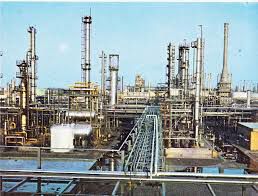Immediate Background to the Nationalisation of the Anglo-Iranian Oil Company’s Crisis: Britain and Iran
Persian diplomacy with Britain to gain an ally in the conflicts with Russia, and the disastrous Turkmanchai Treaty of 1828 forced on Persia, finally impressed upon Persia the danger of her position as between Britain and Russia, the peace treaty of Turkmanchai signed with Russia in 1828 marked the beginning of a new era. From that time Persia ceased to be a completely independent power upon which Britain had been counting. For the capitulating regime it was the start of the period when Britain could directly exert pressure on Persia to protect her interests against Russia. Britain, before the peace treaty of 1828 between Persia and Russia, believed that the Persian empire was declining anyhow, therefore she had already started to make diplomatic manoeuvring in order to establish influence in Persia’s affaires. When in 1826 Teheran applied to the British Government for assistance, the British turned the request down on the plea that Persia waged an aggressive war. After the 1828 Treaty of Turkmanchai between Persia and Russia, Britain exploited Persia’s financial difficulties in order to negotiate an amendment to the key clauses of the Definitive Treaty of 1814 which she had signed with Persia. Later on, when Teheran tried to recover Herat from its Afghan ruler, in order to make good the losses she had suffered in the Caspian region, the British Government intervened decisively, because if Persia had been successful, Russian influence would have penetrated to the south of the Hindukush and presented a standing threat to the Indian sub-continent. The British reminded Teheran of the avenues of pressure to which they would make recourse for the defence of their interests.10
Important as it was Persia for Britain in the nineteenth century, ironically in the twentieth century its significance grew even further. It became a strategic asset for the British Empire.
As the end of the nineteenth century the principal use of petroleum was still seen mainly in terms of lamp oil. During the first decade of the twentieth century however, the actual and potential scope of the uses of petroleum products has expanded in a revolutionary way. There was the possibility of using fuel oil instead coal for the firing of ships’ boilers.
The cost of maintaining the massive Royal Navy was relatively cheap for many years. However, by the beginning of the twentieth century costs of ships and fuelling them in particular began to escalate. Security of the sea was vital to Britain, if her economy was to survive.
The development from which as a result ships could be fuelled by oil, instead of coal, came at the right moment, and therefore finally caught the attention of the British Government. Giving high priority to the security of the sea, and the contribution that oil could make to it, also taking other advantages of oil such as bitumen (for road making) and lubricating oil into account, oil was considered by the British Government a vital raw material socially, industrially and strategically, for any modern state, and thus swift policies were formulated in respect to access to oil.
On May 26th, 1908, a strong flow of oil was tapped at depth of 1,180 feet from the first well drilled at masjid-e Sulaiman in Persia. Ten days later 1,000 feet from a second well drilled in the same locality.
Due to the fact that there were no indigenous oil deposits in the United Kingdom, nor, so far as was known, in any part of the British Empire, the discovery of Persian oil deposits became a major issue in British foreign policy which lasted more than half the twentieth century.
- Ibid.



